Are you ready to become an excellent vegan baker? Let’s do this! This complete vegan baking 101 – basic baking for beginners guide – will help you become familiar with the basics of vegan baking, ingredients, techniques and useful tips. If you are new to vegan baking, read this guide through until the end and become the baker you always wanted to be!
*This post may contain affiliate links. For full disclosure visit our Affiliate Disclosure page.
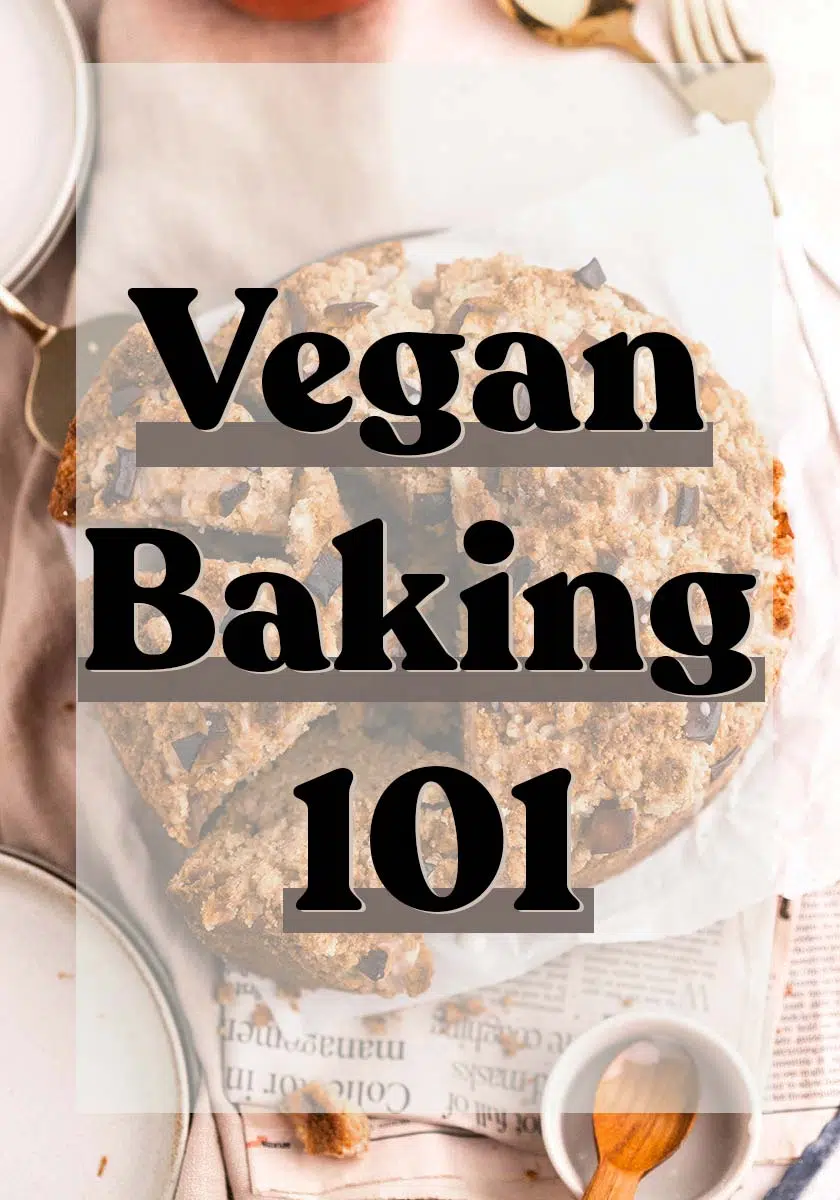
Table of Contents
When I took my first step towards the world of vegan baking, my eyes were opened up to so many new things. I used to bake with the most conventional of baking ingredients, such as eggs, dairy milk, buttermilk, butter, cream cheese, etc. before I started baking with plant-based ingredients. At first, the thought of NOT using all the ingredients I was so used to using in baking was a little overwhelming, to say the least, I’m not going to lie… However, at the same time, it was so much fun to discover new ways to bake my cakes, muffins and other delicious baked goods!
When I first started learning about vegan baking, I had all these questions in my head – Can you even make a cake without eggs? What should I use in place of butter? Surely you can’t make cheesecake without cheese…?
If you just nodded at the screen, I feel you! I’ve been there before, and I’m quite confident to say now that I know a fair bit about vegan baking and what ingredients are best for each category of baking. I’m here to help you start your vegan baking journey! This guide is the only guide you need to know everything about vegan baking substitutes. Let’s get started, shall we?
Must Read: The Ultimate Guide to Perfect Muffins – A complete guide to baking your perfect vegan muffins with easy and delicious muffin recipes!
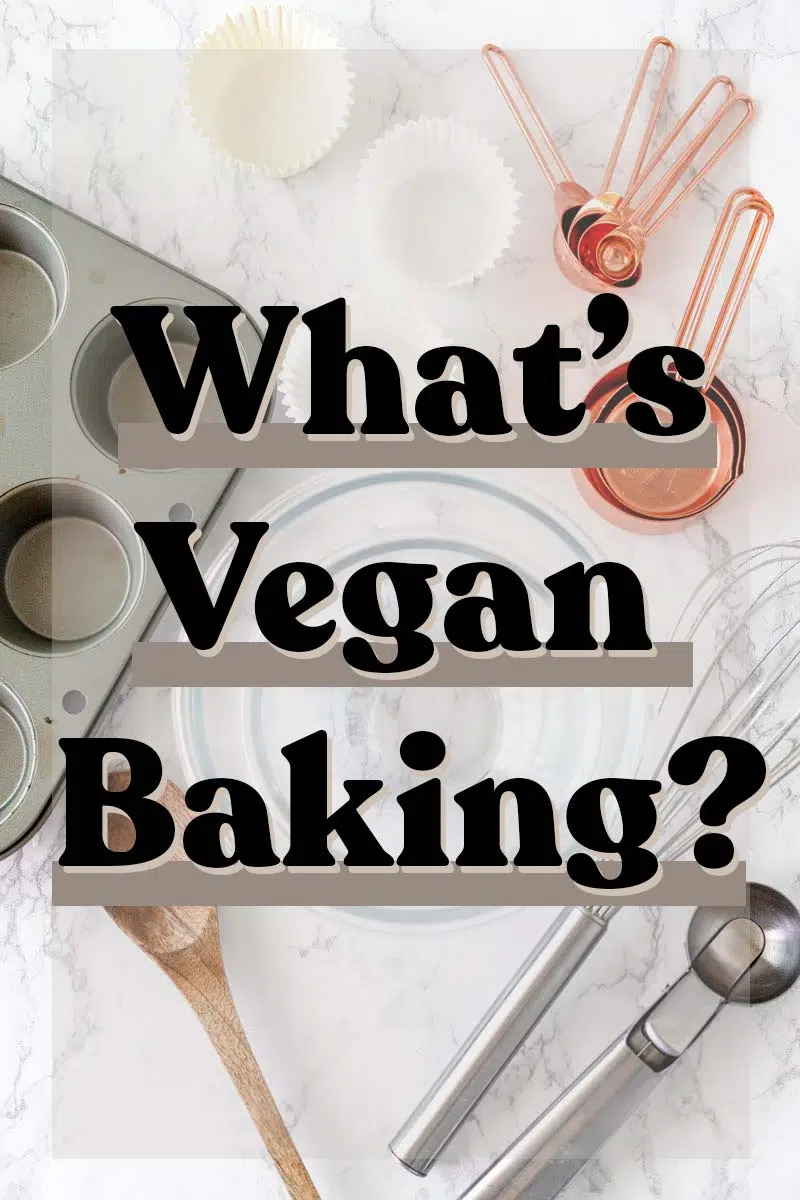
Vegan Baking 101 – What’s vegan baking? Basics of baking
I’m often asked by people “How do you bake vegan?”. The simple answer is, I bake without any animal products like eggs and dairy milk! And then they would ask “But is it even possible to bake without them?” and my answer is always “yes, of course!”. You can bake all of your favourite baked goods from classic layer cakes to breakfast muffins and scones just as delicious as any other baked goods!
When I first started baking with plant-based ingredients, I did a lot of research for ingredients to use instead of conventional baking ingredients like eggs and milk. So let’s talk about it first because I think everyone is curious about it!
Must read: The Ultimate Guide to Perfect Cookies – A complete guide to baking your perfect vegan cookies with easy and delicious cookie recipes!
Replacements in vegan baking
Egg
Eggs were one of the things I believed couldn’t be replaced by anything in baking before I started baking with plant-based ingredients. But there are so many vegan egg substitutes you can use in baking!
Flax egg: Flax egg is a mixture of ground flax seeds and water. Ground flax seeds become thick and jelly-like when mixed with water, and it works as a binding agent in baking, like eggs! The making of flax eggs is very simple. Mix 1 part ground flax seed and 3 parts water together and let it sit for 5-10 mins until it thickens. Voila! I use flax eggs in many of my recipes from muffins to breakfast bars. They are easy to use and work very well as an egg substitute. To substitute 1 egg, use 1 tbsp ground flax seeds + 3 tbsp water. Simple!
Chia egg: Like flax egg, chia egg is made with chia seeds and water. Chia seeds become thick and jelly-like when mixed with water, just like ground flax seeds. And the mixing ratio is exactly the same, 1 part chia seeds and 3 parts water. Let it sit for 5-10 mins until it thickens and it’s ready to use in baking. To substitute 1 egg, use 1 tbsp chia seeds + 3 tbsp water.
Cornflour: Cornflour is a starch that works as a binding and thickening agent in place of eggs in vegan baking. It also makes baking goods soft and moist, so I use it quite often in my recipes! To substitute 1 egg, mix 2 tbsp cornflour and 2 tbsp water. You can make the cornflour mixture then mix it into the batter, or you can add 2 tbsp cornflour in the main flour and add 2 tbsp water or plant milk into the batter. Either way works!
Tapioca flour/arrowroot flour: Just like cornflour, tapioca flour and arrowroot flour are starches that work well as an egg substitute in vegan baking. They are typically used as a thickening agent in puddings, but they can be used as binding agents in baking too! Mix 2 tbsp tapioca/arrowroot flour with 2 tbsp water to substitute 1 egg. Or you can just add 2 tbsp tapioca/arrowroot flour into the main flour and add 2 tbsp water or plant milk into the batter too!
Mashed fruits: Mashed fruits such as applesauce or mashed bananas work well to give baked goods the moisture and softness that eggs give in baking. To substitute 1 egg, use 1/4 cup of applesauce or mashed banana. If you are using applesauce or mashed banana in place of eggs, they don’t help baked goods bind together as well as starches. So add 1 tbsp of one of the starches listed above to help bind your baked goods too!
Baking soda + apple cider vinegar: I get this question quite often which goes like “How do you make your baked goods rise so nice and tall without eggs?”. Eggs are a leavening agent and help raise baked goods, and to do the same in vegan baking, I use 1 tsp baking soda and 1 tsp apple cider vinegar on top of baking powder in my recipes.
Baking powder and baking soda are similar but a little different. Baking soda is a pure form of sodium bicarbonate, which has 4 times the power to raise baked goods than baking powder. But it needs acid to be activated whereas baking powder already has an acid element in it. So just using baking soda alone won’t raise baked goods and that’s when apple cider vinegar comes in to help! Baking soda is activated when mixed with acid like apple cider vinegar, and it helps baked goods rise tall like eggs do in baking.
Store-bought egg replacer: There are many egg replacers nowadays on the market. They are often in powder form and you can mix them with water to make an egg replacement in baking. Read the instructions of the product carefully before using in baking.
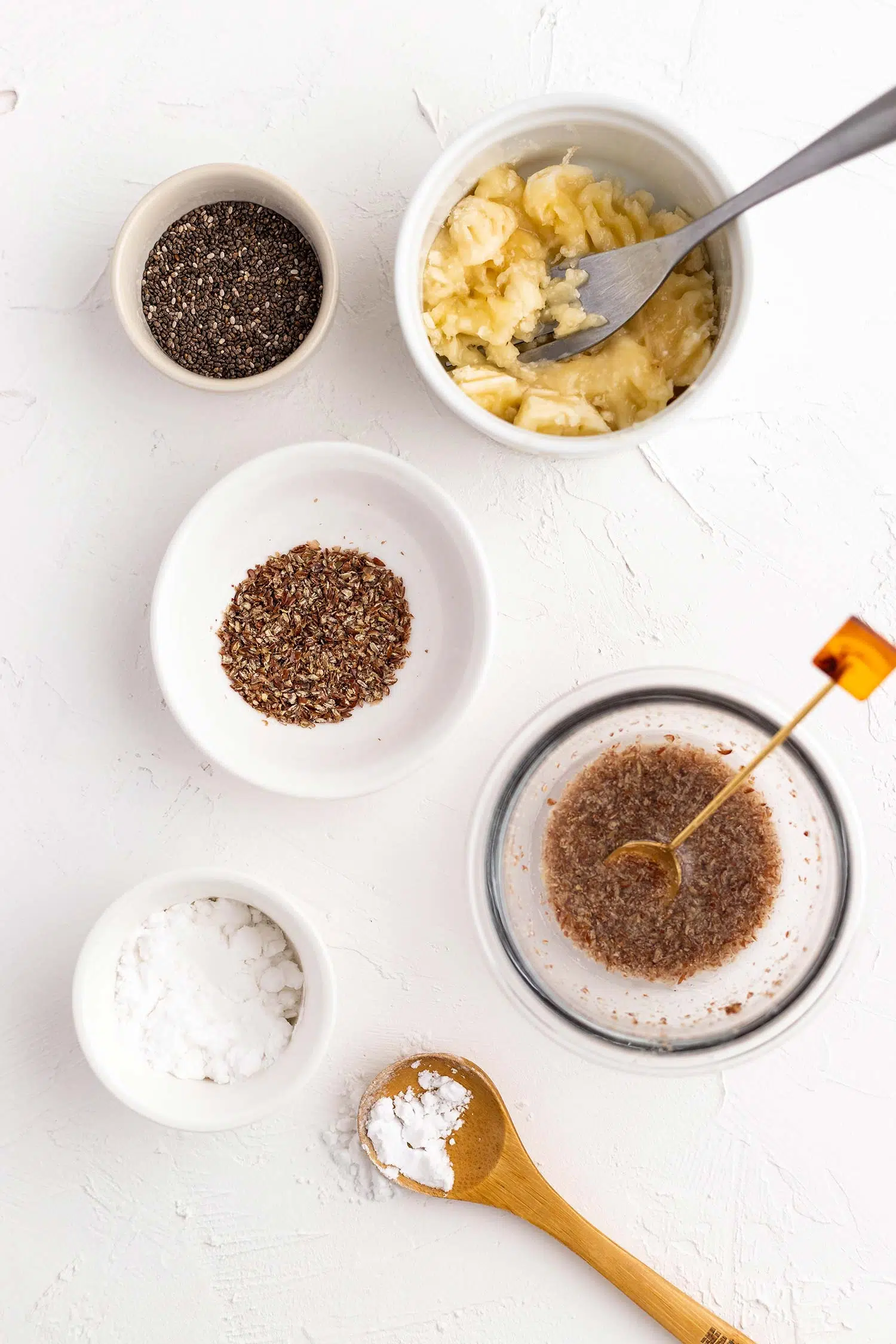
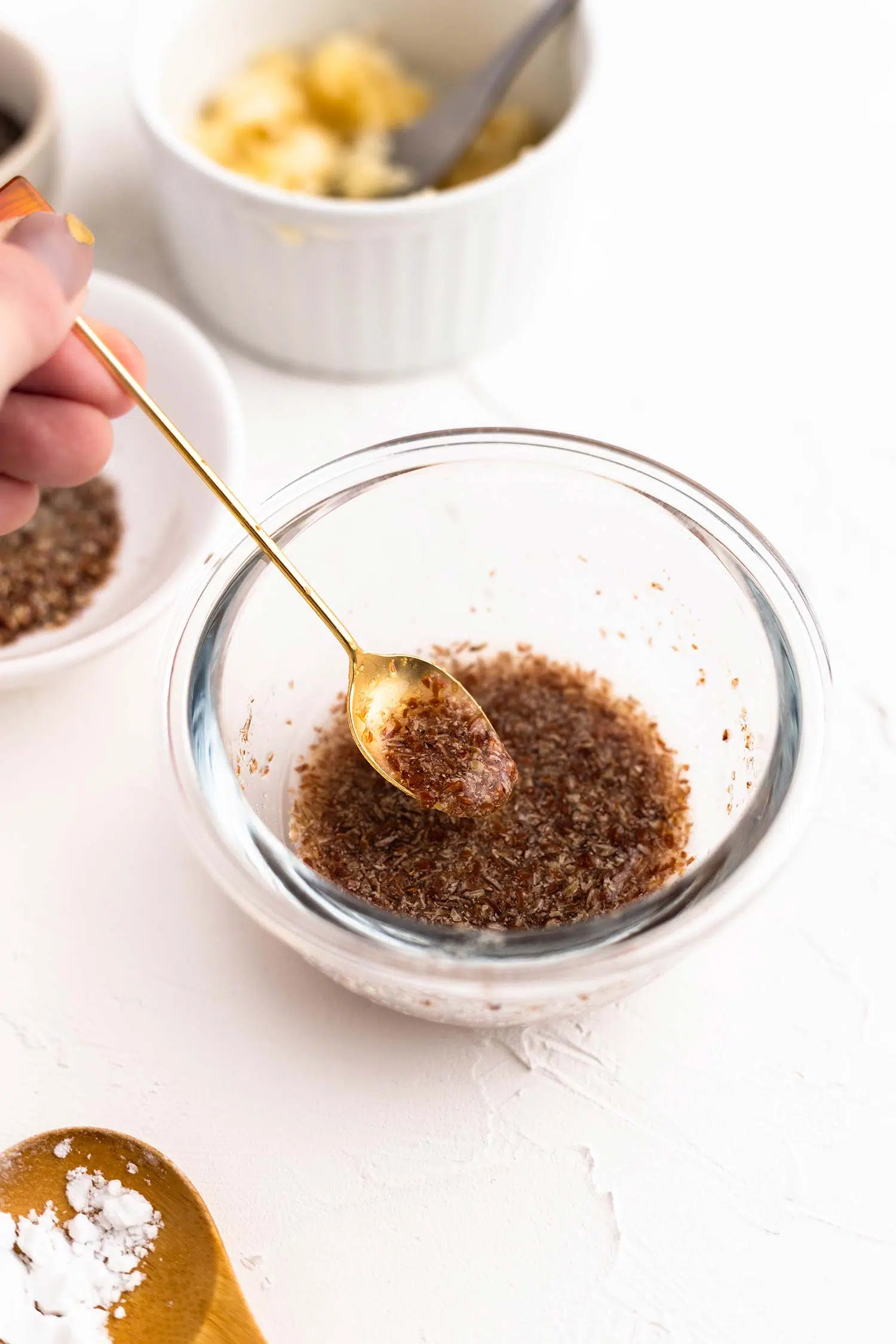
Egg White
Egg white is one of the major ingredients used in baking. From making souffle, cakes, pancakes etc. Egg white is typically whipped into creamy and fluffy meringue, and you can make your vegan meringue using this ingredient.
Aquafaba: Aquafaba is an amazing liquid that can be used in vegan baking in place of egg white. Plus, it makes amazing meringue! So what is aquafaba? Aquafaba is a leftover liquid of cooked chickpeas. Whoever discovered that it can transform into meringue is a genius. I often used to use nice, perky meringue to make pancakes and cakes as it gives a soft and fluffy texture and also acts as a leavening agent. Aquafaba works exactly like egg white when whipped with an electric mixer. 2 tbsp of aquafaba can substitute about 1 egg white and 3 tbsp can also substitute a whole egg. To make vegan meringue, beat aquafaba with a handheld electric mixer or stand mixer for 5-7 mins or until it’s airy, fluffy and increased in volume.
Butter
There are so many great vegan butter alternatives out there nowadays which is amazing! Whether it’s a store-bought vegan butter or other ingredients that work in place of butter, baking without dairy butter is so much easier than you think it is, trust me! Having said that, always follow the instruction of the recipe since replacing butter can sometimes be a little tricky because of its water content.
Nut butter: One of my favourite things to use instead of dairy butter in baking is nut butter! Nut butter has healthy fat that replaces dairy butter in baking. You can most likely replace butter in any recipe with the same amount of nut butter, but the consistency is different for each nut butter so follow the instruction always if the recipe calls for nut butter instead of butter. Nut butter is great for oil-free baking too.
Vegetable oils: Vegetable oils can be used in place of melted butter in baking. However, butter has some water content whereas oil has no water in it, so the final product with just oil tend to be moister and literally oilier than with vegan butter. I use vegetable oils often in my muffin recipes and cake recipes. The easiest vegetable oil to use for baking is canola oil. It’s neutral in flavour so works great in many recipes. Olive oil is another great oil to use in baking too, for such baked goods as olive cakes and bread.
Coconut oil: Coconut oil is also a great oil to use in vegan baking. Coconut oil becomes solid at cold temperature and liquid at a warm temperature, which is very similar to dairy butter. I love using coconut oil in my cookie recipes as well as cake or loaf recipes. You can beat the solid form of coconut oil with an electric mixer when making cookies or cakes, or use the liquid form in muffin or oat bar recipes.
Store-bought vegan buttery spread/buttery sticks: It’s so easy to find vegan buttery spreads or sticks in supermarkets nowadays and I love it! If you are using vegan buttery spreads or buttery sticks, use the same amount as instructed in the recipe. If you live in an area where you can’t find any vegan butter in your local supermarket, you can always use one of the substitutes listed above! One of my favourite vegan butter is Naturli‘s vegan butter, the consistency is very close to dairy butter and can be used in baking recipes like any other butter!
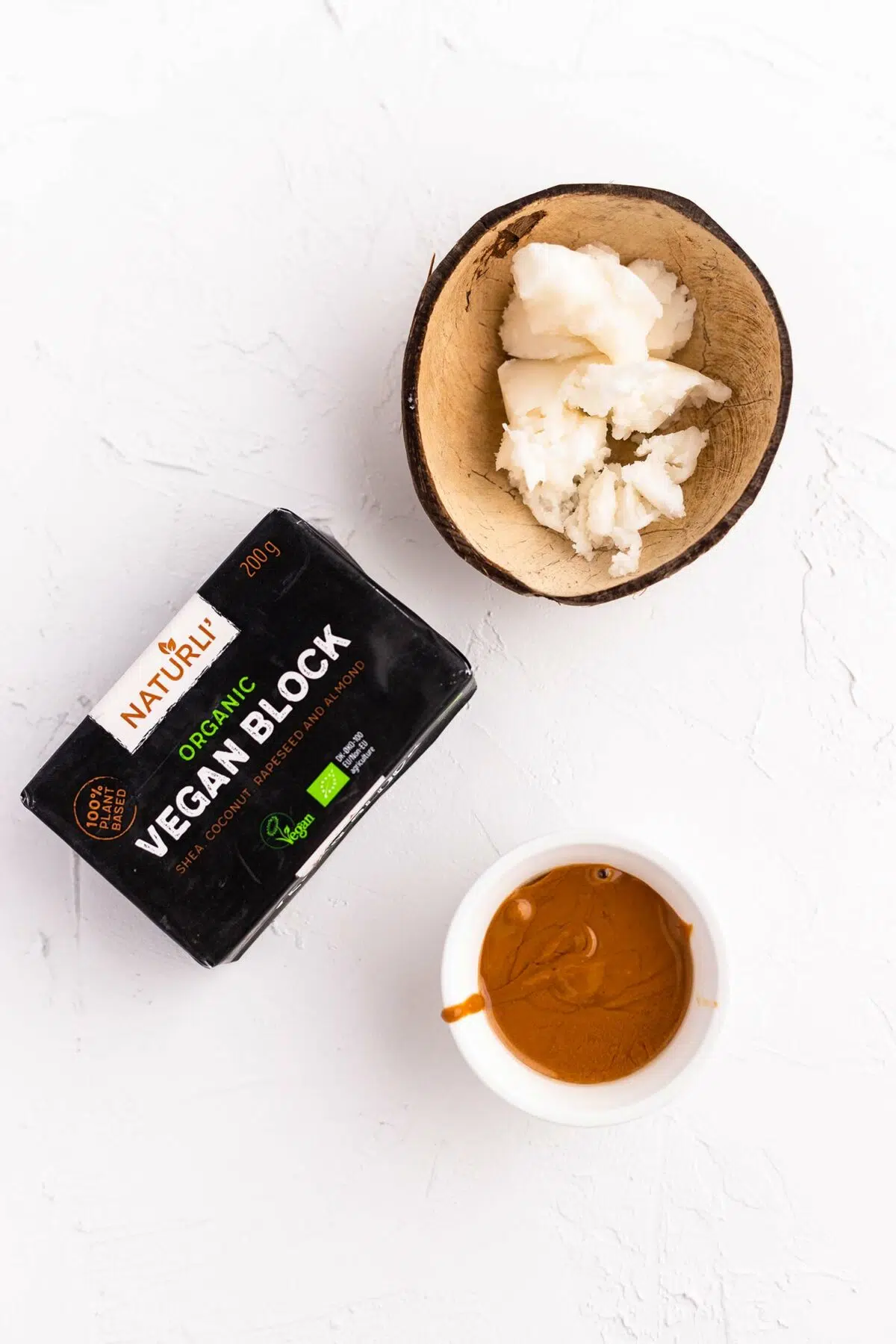
Dairy Milk
Milk is another common, main ingredient used in baking. There are so many plant-based milk alternatives to dairy milk out there, so let’s explore!
Soy milk: Soy milk is one of my favourite plant-based milk to use in baking! Most supermarkets have soy milk and it’s one of the easiest to find. Soy milk is creamy and a great plant milk to make vegan buttermilk too. Buttermilk is acidic milk that makes baked goods soft and tender, I will explain it in detail in a later section!
Almond milk: Almond milk is a light plant milk that can be used in vegan baking in place of dairy milk. Almond milk has such a lovely nutty flavour and I love using almond milk in baking! It’s relatively lower in calories compared to other plant milk so the baked goods with almond milk tend to be lighter in texture. You can also mix it with apple cider vinegar to make vegan buttermilk too.
Oat milk: Oat milk is also one of the great plant milks to use in vegan baking. It’s quite neutral in flavour compared to soy milk so if you are new to using plant milk, try oat milk! I love using oat milk in my baking to add some nice oaty flavour. Breakfast oat bars are such fantastic baked goods to use oat milk with! Just like soy milk and almond milk, you can mix it with apple cider vinegar to make vegan buttermilk too.
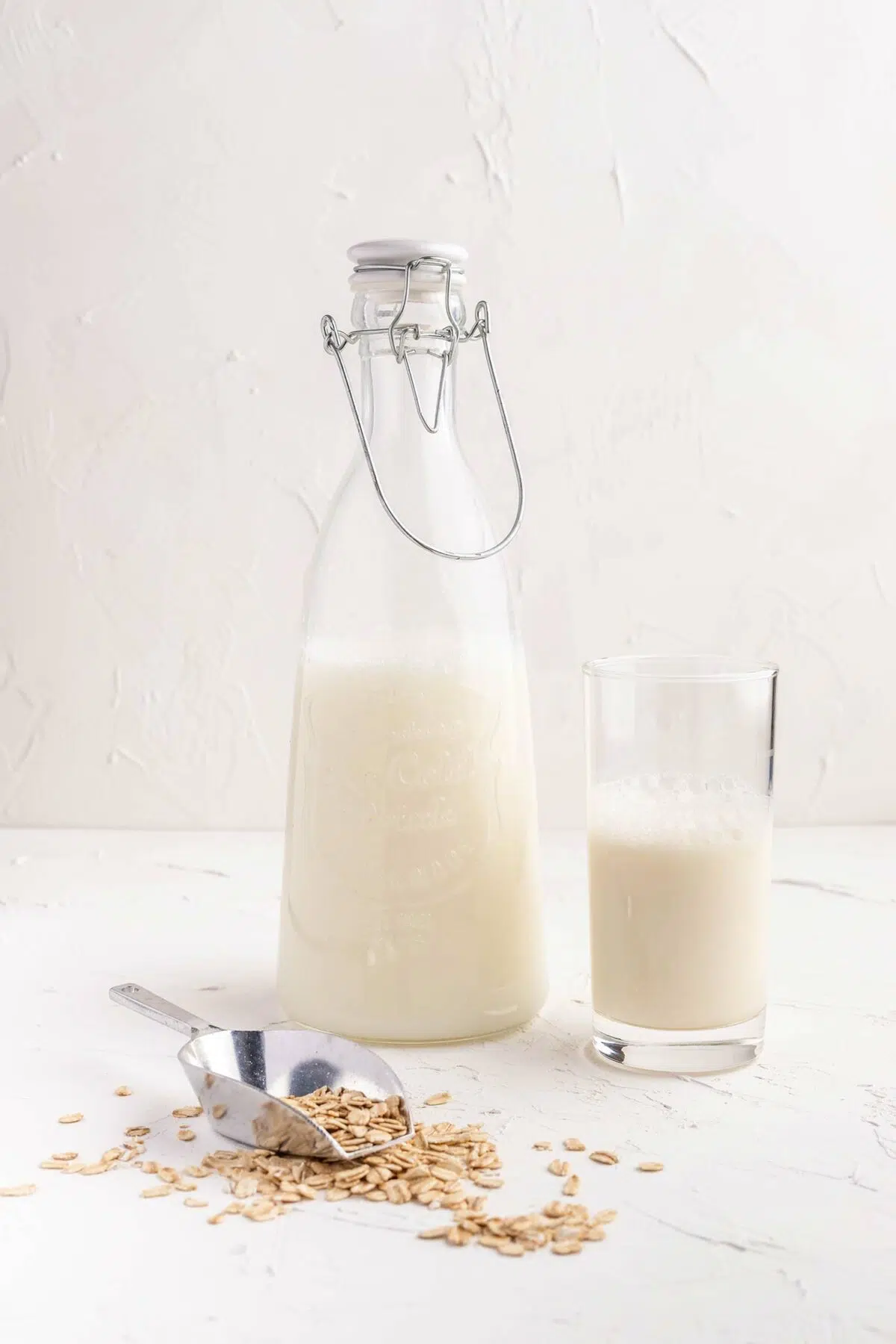
Buttermilk
What is buttermilk? Buttermilk is essentially a fermented, acidic, dairy milk that is used in baking. Why use buttermilk in baking? Well, the reason for using buttermilk in baking is that the acidity of buttermilk helps relax the gluten developed in batters and doughs and creates a soft, tender and fluffy texture in baked goods. It also works very well with baking soda to help raise cakes or muffins nice and tall.
Plant milk + apple cider vinegar or lemon juice: To make vegan buttermilk, you can just mix 1 ingredient with your favourite plant milk and leave for a few minutes instead of waiting for the plant milk to be fermented naturally. The 1 ingredient is apple cider vinegar or lemon juice! My go-to vegan buttermilk mixture is soy milk and apple cider vinegar, which you will find in many of my recipes. I also use the combination of soy milk + lemon juice, almond milk + apple cider vinegar/lemon juice, depending on the recipe I’m developing. I might use an almond milk + lemon juice combination if I was making, say, Almond Lemon Loaf!
Cheese
Like everyone else, one of my favourite cakes is cheesecake. Whether it’s New York style baked cheesecake or no-bake cheesecake, I’m all over them. Cheesecake was also one of the baked goods that I was sceptical about if it could even be made vegan, and I’m excited to tell you that yes, it can be made vegan!
Cashew nuts: Cashew nuts are one of the most popular ingredients used to make vegan cheese. When I first started baking with plant ingredients, cashew nuts were a lifesaver! You can blend them in a high-speed blender or food processor with a little bit of lemon juice to make creamy cashew paste, and from there you can use it just like cream cheese in baking. You can also use the cashew paste as the base in a no-bake cheesecake or as vegan cream cheese frosting too!
Dairy-free yoghurt: Dairy-free yoghurt, such as soy yoghurt, almond yoghurt or coconut yoghurt are great substitutes for cheese in baking. The tanginess of yoghurt mimics the taste of cheese and it’s easy to replace cheese with plant yoghurt. When using plant yoghurt in baking or no-bake baking, always choose ones that are thick and creamy in consistency over thin and runny ones. Thick and creamy ones work way better as a substitute for cheese!
Coconut cream: Coconut cream is the solid part of canned coconut milk that is thick and creamy. This part is a great substitute for cream cheese in vegan baking as well as no-bake baking! To successfully get the solid creamy part, chill a can of coconut milk in the fridge overnight, carefully open the lid and scoop out the solid part with a spoon. The content of the solid fat part of coconut milk greatly varies depending on the coconut milk. Cheap coconut milk tends to have less fat content so when you are buying canned coconut milk, go for one that is not too cheap or check the content on the label!
Store-bought cheese: If you have access to great vegan cream cheese like Sheese, they are a fantastic substitute for dairy cream cheese! I often use Sheese or Violife Creamy. You can use a 1:1 ratio in recipes.
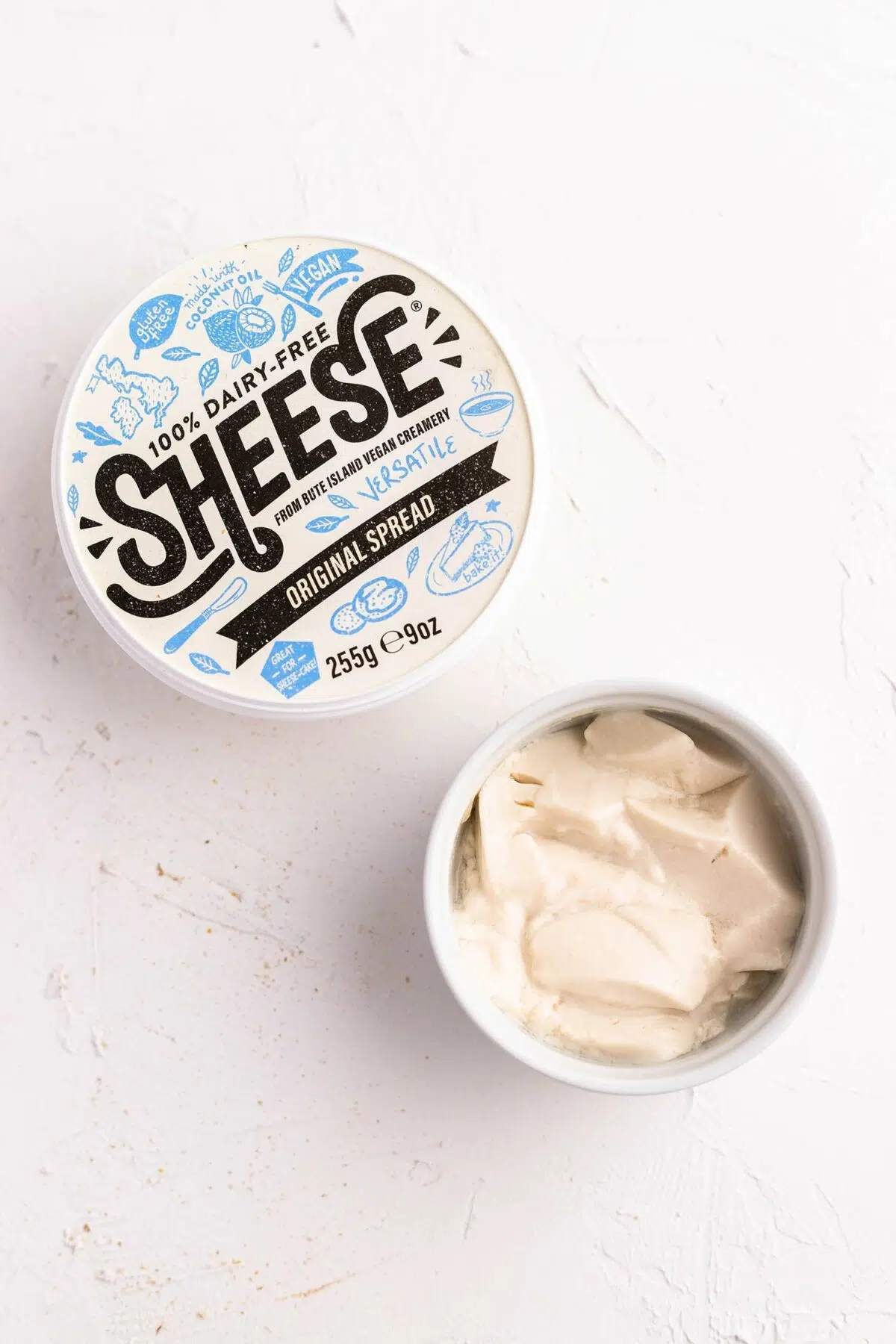
Top vegan baking tips
No overmixing batter: Over mixing batter is a killer in baking! Why? Because when you mix your batter, gluten will be developed naturally and if done too much, it leads to over development of gluten. This is one of the very common reasons for baked goods turning tough, rubbery, and not fluffy in texture. When I bake, I always mix the batter gently with a large wooden spoon or a silicone spatula rather than a whisk because I find it easy to over mix with a whisk.
Lining or greasing: When baking cakes, muffins, brownies, etc. it’s always a good idea to line or grease your tin and tray! This prevents baked goods from sticking to the bottom and sides of tins and trays and makes it so much easier to remove.
Use room temperature ingredients if stated in the recipe: Always use room temperature ingredients if the recipe you are making calls for them. The temperature of the ingredients matters because some ingredients can change their consistency depending on the temperature. For instance, if you add cold plant milk to room temperature or melted vegan butter, the butter will start to harden and it might create a problem in making the recipe. So read recipes carefully and use ingredients at the optimal temperature.
Use fresh baking powder/baking soda: Leavening agents like baking powder and baking soda are important in vegan baking to make your baked goods nice and fluffy. If you use old, stale ones it won’t work and the final products won’t rise and be fluffy. To test if your baking powder or soda is fresh, take a small amount of it on a plate and drop some vinegar. If it bubbles up it’s good to go!
Cover the top with foil halfway through: I often hear from people that their baked goods are burnt on top but still raw in the middle. This often happens for baked goods that need a baking time of 45 mins or more. When the recipe calls for a long baking time, place a sheet of foil over the top halfway through then bake for the remaining time. So if the baking time is 50 mins, do this after 30-40 mins of baking when the top starts to brown. This prevents the top from burning!
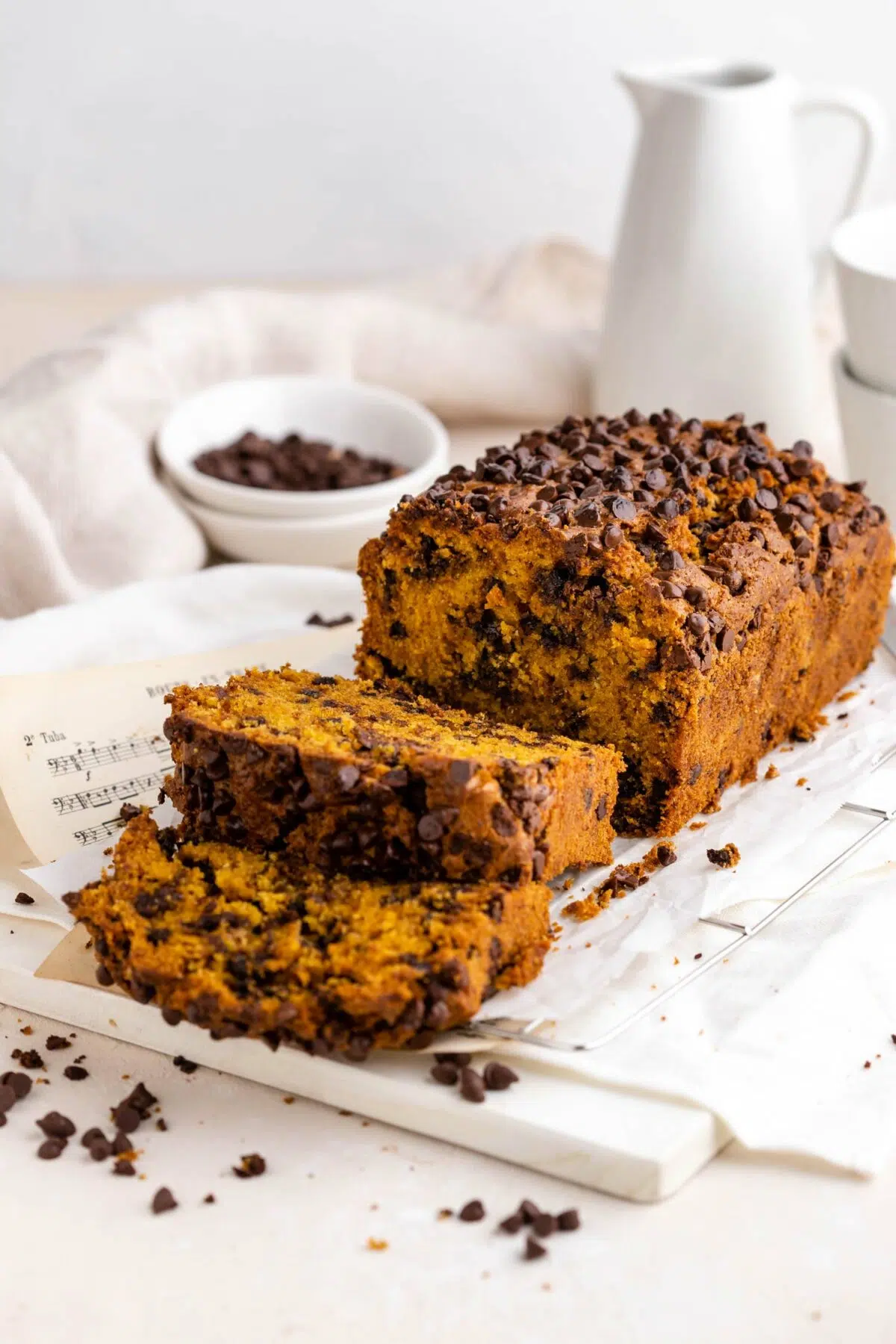
Is sugar vegan?
When you are baking with sugars, such as caster sugar, granulated sugar, icing sugar, brown sugar, etc., choose ones that don’t use bone char as a filter in the manufacturing process. What is bone char? Bone char is charcoal made with animal bones that are used in the sugar making process to make sugars whiter. Not cool! So is brown sugar vegan? The answer is most brown sugars are just regular white sugar that has molasses added to it, so it depends on the brand.
I purchase sugars that are free from bone char online. They are about the same price as those largely marketed sugars that use bone char! The best way to check if your sugar is bone char free is by contacting the manufacturers by phone call or email and asking them if their sugar uses bone char in the making process. They should give you more details about how their sugar is made!
If you are in the US, all organic sugars are vegan! If you are in the UK, most of Tate and Lyle and Silver Spoon‘s sugars are vegan except the ones that use egg white. You can find out more about it in their FAQ section on their website. Here is a useful article from PETA about sugar and brands that don’t use bone char.
Scale measuring vs cup measuring
I strongly recommend you weigh your ingredients with a digital scale rather than measure only with measuring cups. Measuring cups are easy to use but it’s very inaccurate when it comes to baking! You can easily over or under-measure ingredients and it will affect the final product you are making massively.
A digital scale is very affordable too so get yours if you don’t have one and become an even better baker today!
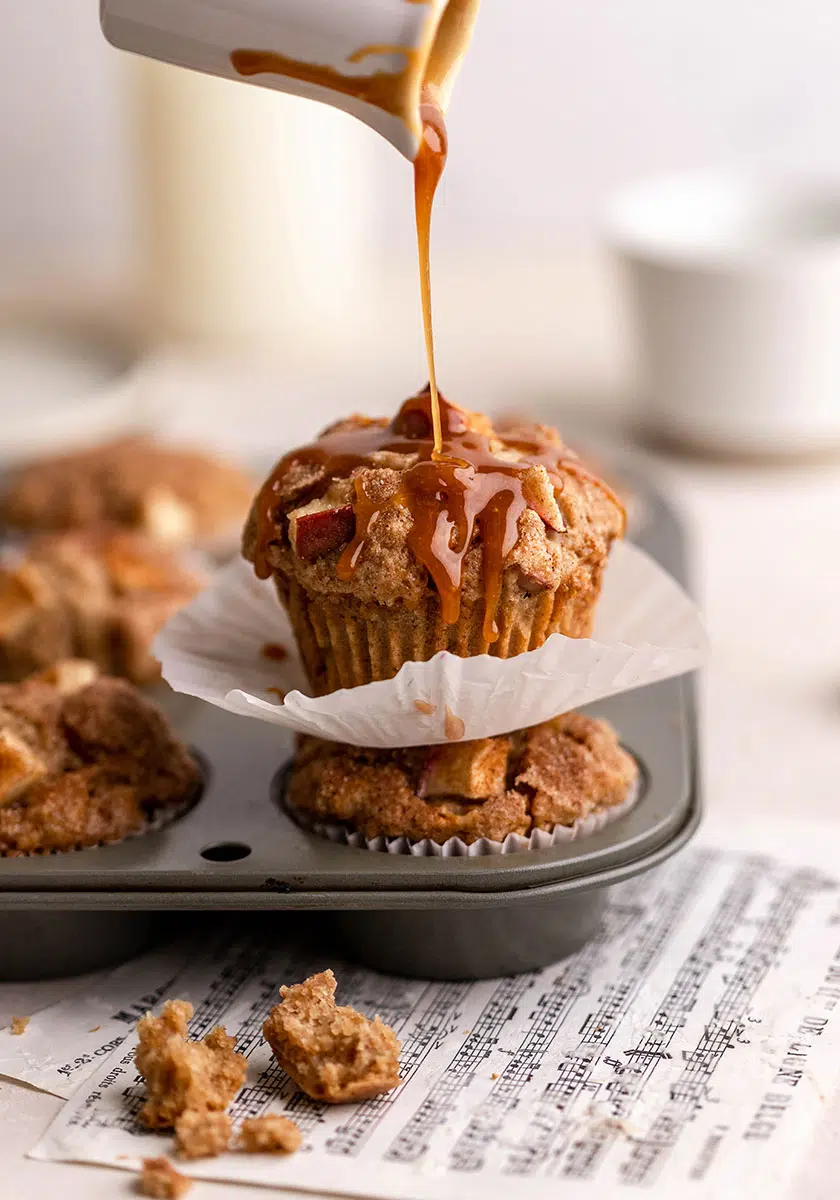
Master your muffin and cookie baking skills now!
Are you ready to up your baking skills further? Start with The Ultimate Guide to Vegan Muffins and The Ultimate Guide to Vegan Cookies! These guides contain the simplest yet most delicious basic muffin recipes and cookie recipes! You can find useful tips specifically for vegan muffins and cookies in the guides + free ebook with 3 easy and delicious muffin and cookie recipes inside!
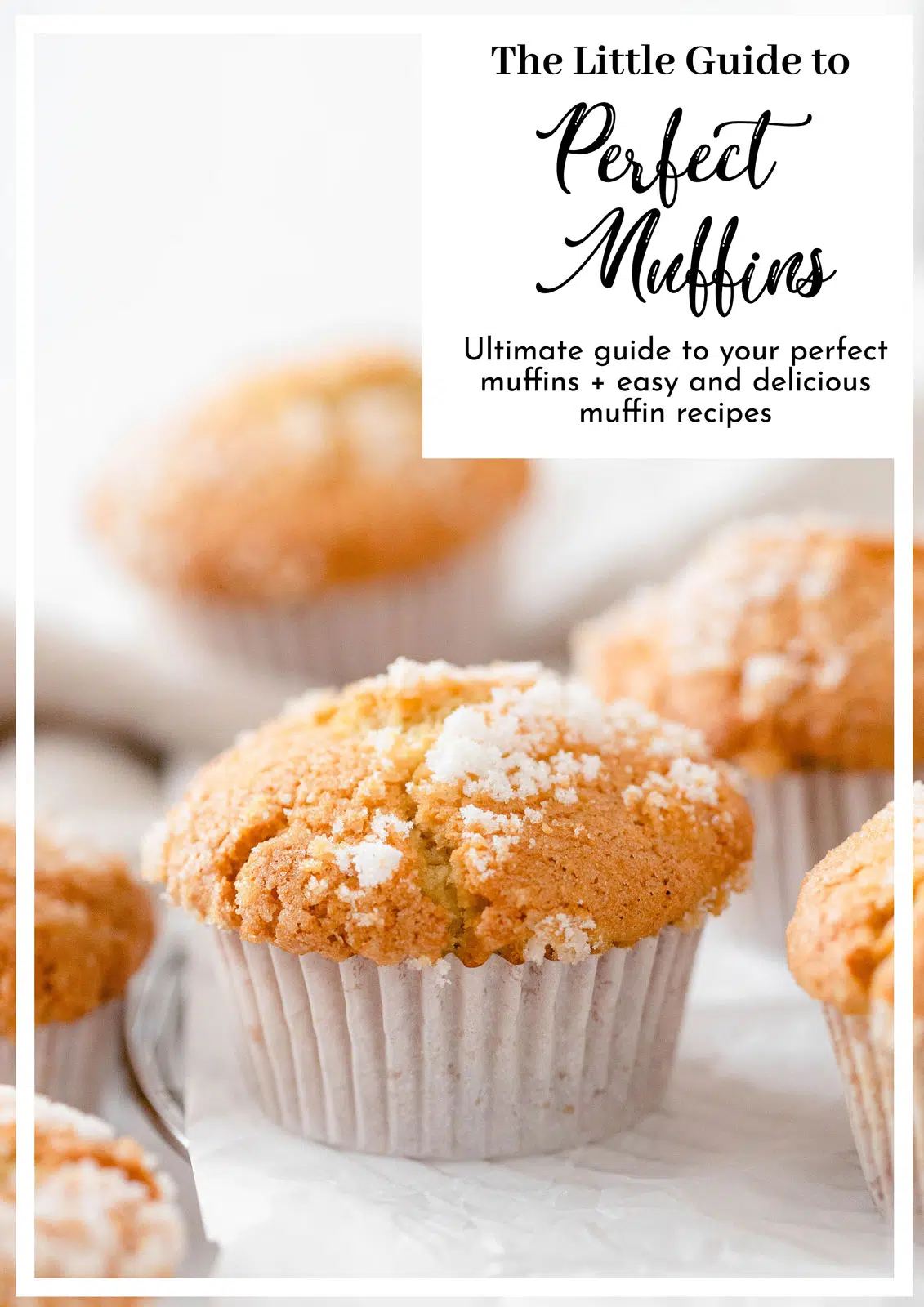
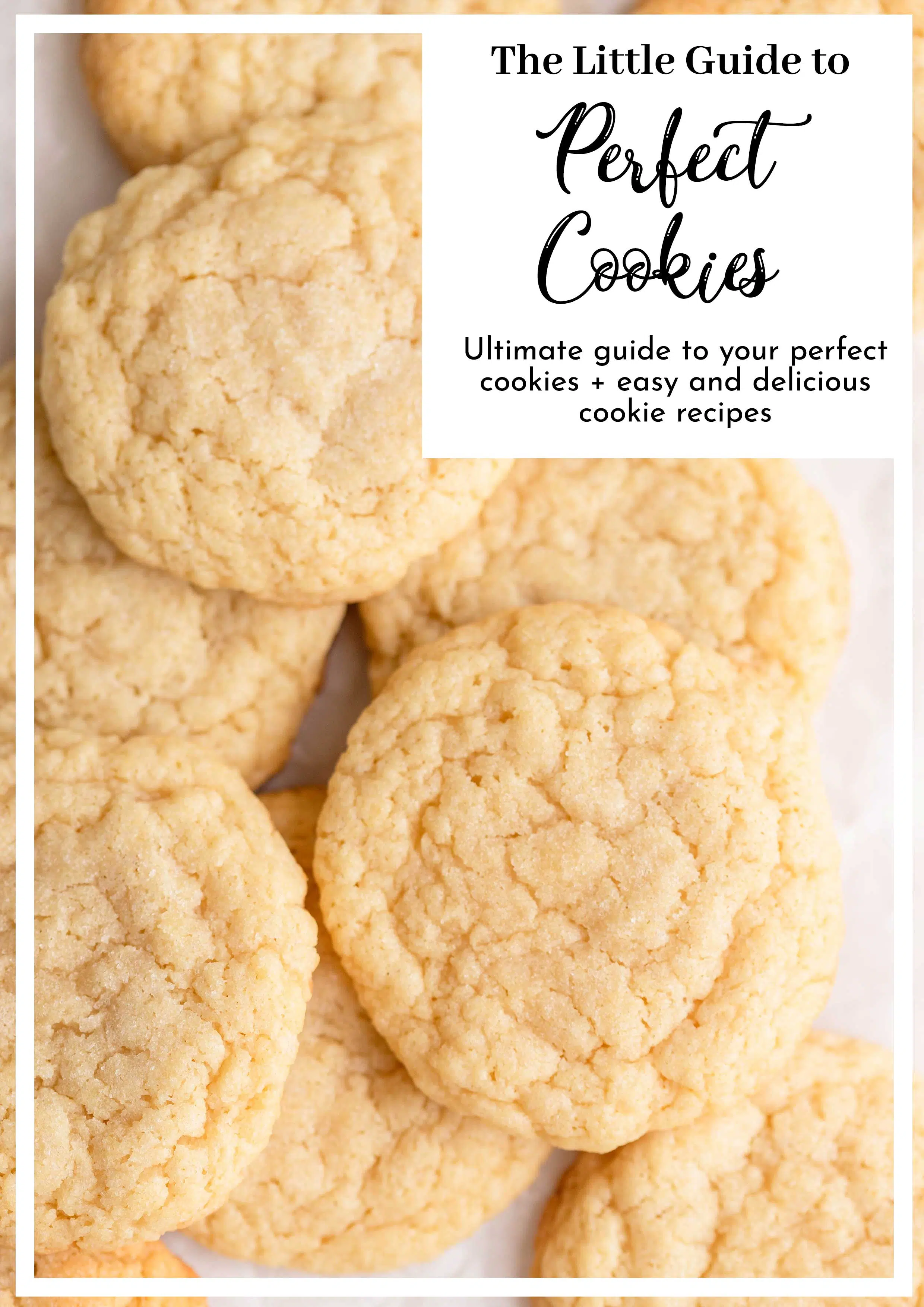
Want to learn about baking with apples?
Read this Baking with Apples Guide with 14 amazing vegan apple recipes!
My favourite vegan baking recipes you can try now
Here are some of my favourite baking recipes you can try now!
- Biscoff cupcakes
- Apple cinnamon muffins
- Chocolate chip pumpkin bread
- Lemon muffins
- Double chocolate muffins
- Matcha cupcakes
- Apple crumble cake
- Matcha brownies
If you find this post useful or have questions about vegan baking, let me know in the comment section below!

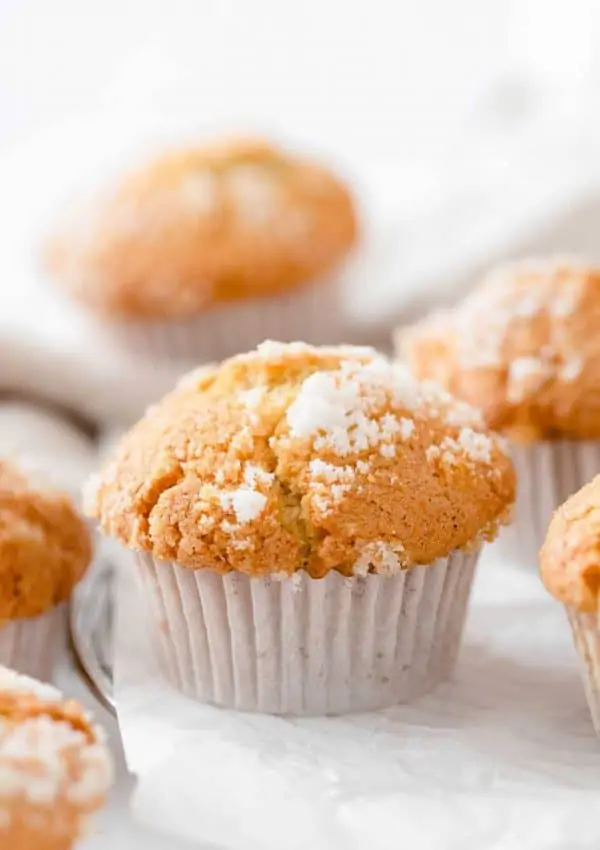
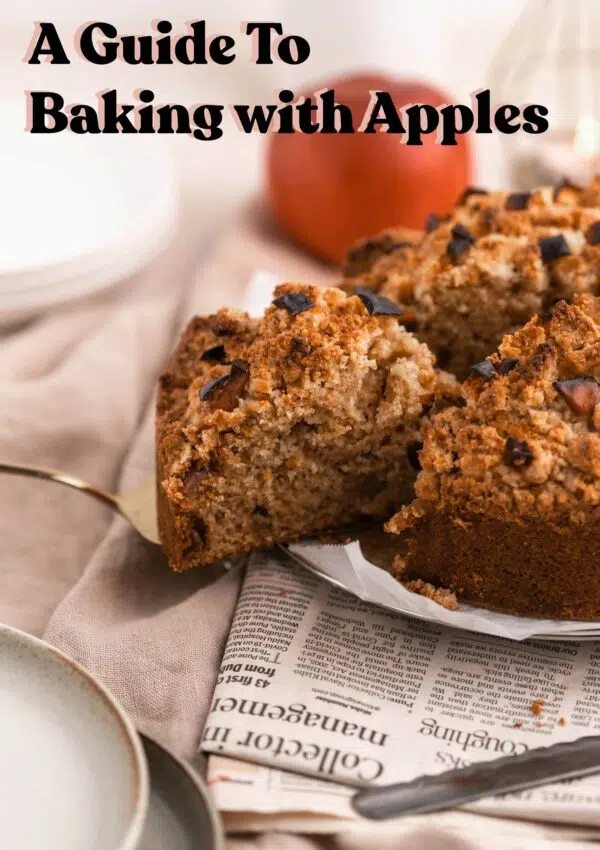
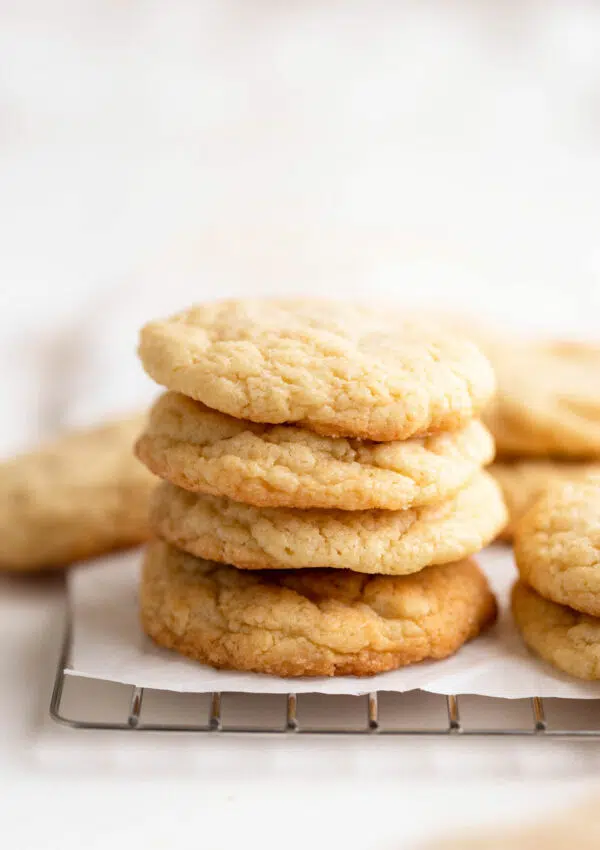
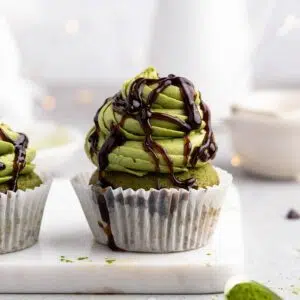
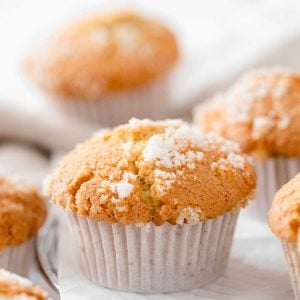
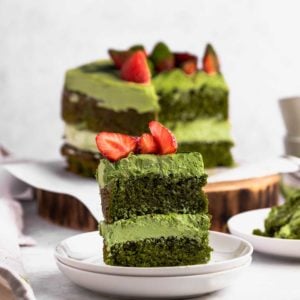
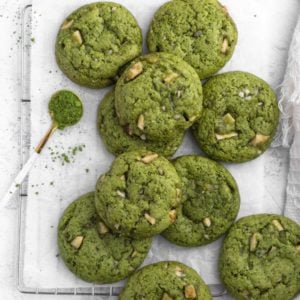
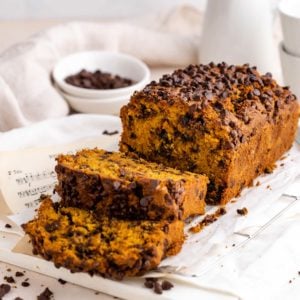
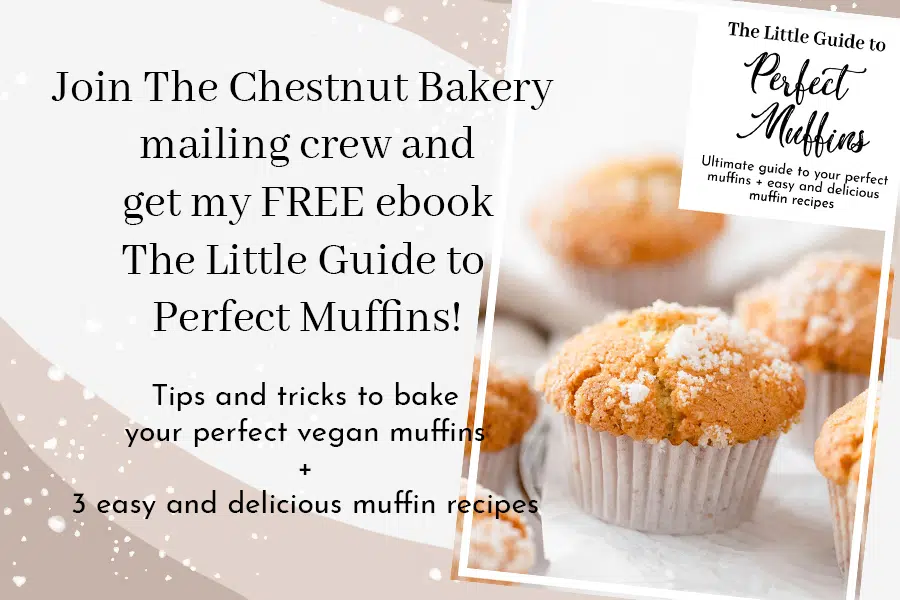
Leave a Reply